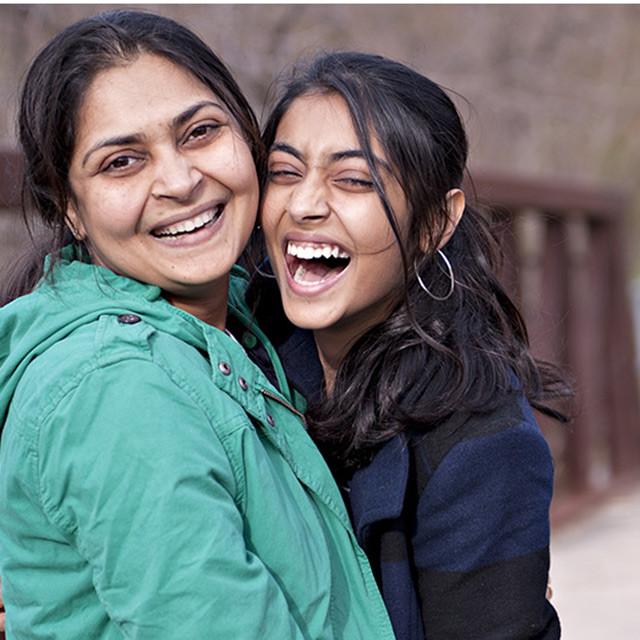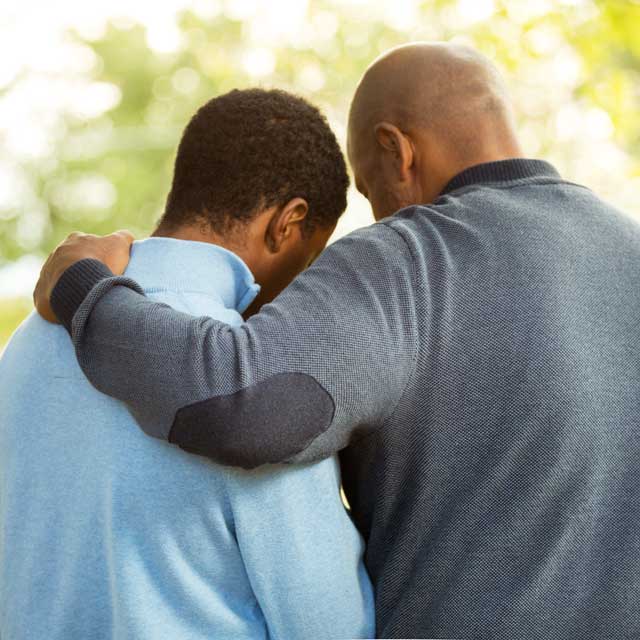Start talking about healthy teen relationships before dating even begins.
Relationships take on elevated importance in the teenage years. As parents, we want happy and safe relationships — romantic or platonic — for our teens, but getting them to open up about relationships can be tricky.
How do you keep the lines of communication open and help your teen develop healthy relationships? We asked Dr. Mary Romano, a physician with Vanderbilt Adolescent and Young Adult Health, to provide guidance to families of teens.
Start talking early
“We start talking to our kids about relationships when they’re young, because showing respect and kindness is important at any age,” Romano said. As teens move toward dating and romantic relationships, these conversations may start to change and take on a different meaning.
It is best to talk with your teens about these topics before they start dating, Romano recommends. “You can ask them things such as, ‘What are you looking for in a boyfriend/girlfriend/friend?’ or ‘How would you like to be treated?’” she said.
“It is important to point out what is not healthy in a relationship — someone who makes you feel unsafe or tries to change or control things about you.” Television shows or media posts can be great openings for conversations.
Discuss healthy online interactions
“In this day and age, we also know teens are often active and having relationships — romantic or not — on social media,” Romano said, noting that it’s important to monitor your teen’s activity online as well in real life. “Be sure that you talk to your teen about appropriate interactions online as well as offline. Make sure they know to reach out to you if they feel bullied or unsafe with any sort of online or texting communication.”
Be a safe place
“Relationship violence is a real issue for teens,” Romano said. One in three adolescents in the United States is the victim of physical, sexual, emotional or verbal abuse from a dating partner. One in 10 high school students has been purposefully hit, slapped or physically hurt by a boyfriend or girlfriend.
Just as concerning is that only 33 % of teens in a violent relationship tell anyone about the abuse.
“It is important for teens to know what’s healthy in a relationship and to have a place where they feel safe talking about their relationship,” Romano said. “As parents, we want this place to be us.”
Watch for signs of problems in your teen’s relationships
In addition to frequent check-ins with your teen about their friends and relationships, Romano says you should watch for warning signs that your teen is in an unsafe or unhealthy dynamic:
- Sudden changes in your teen’s behavior, grades or interest in activities;
- Unexplained bruises or injuries;
- Teens isolating themselves or making excuses for a partner.
“You can help your teen solve problems by asking what they would do if they felt unsafe or poorly treated by a partner,” she said. “Listening to your teen’s answers and offering suggestions of your own can keep the conversation going.”
Model healthy relationships
Most importantly, be sure to model healthy relationships with others and with your children. “Treating your partner, your friends and your teen with respect helps your teen see your values and examples in action,” Romano said. “It’s also helpful to provide your teen with descriptions of what healthy — and not-so-healthy — relationships look like, whether romantic ones or friendships.” Here is a helpful reality check for adolescents.

Monroe Carell Jr. Children’s Hospital at Vanderbilt is among the top children’s hospitals in the nation. More than 500 physicians in 30 pediatric and surgical specialties offer everything from basic preventive care to treatment for the most complex pediatric conditions. Our specialists offer expert care close to home, throughout Middle Tennessee and beyond.




